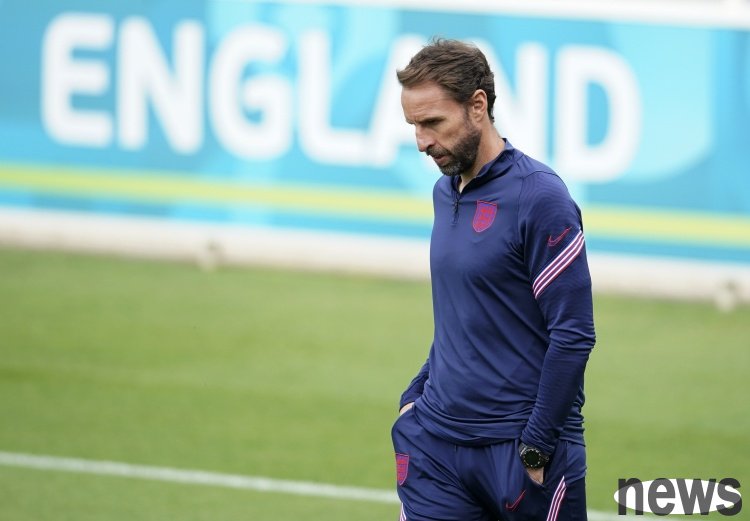Southgate wrote the book "Dear England" based on his eight years as the England men's football coach, describing the lessons he learned about leading a team from this experience. The beginning of Southgate's football career was dif...

Southgate wrote the book "Dear England" based on his eight years as the England men's football coach, describing the lessons he learned about leading a team from this experience.
The beginning of Southgate's football career was different. When he came to Crystal Palace as an apprentice on the first day, he wore a neat school uniform, while other players were wearing casual clothes. He is articulate and comes from a lower-middle-class suburban family. His mother is a school cafeteria aunt and his father has a stable job at IBM.
In the book, Southgate wrote about himself: "I am too decent... too well-behaved to become a great person." When he was an apprentice at Crystal Palace, youth team coach Alan Smith once pulled Southgate aside and said: "Gareth, You are a good boy, but if it were me, I would consider becoming a travel agent."
This sentence hurt Southgate and became his "turning point", and he realized that he needed to "show some tough qualities." Southgate captained a team at the age of 23, becoming a young leader in a dressing room made up largely of older and "highly motivated misfits", appointed captain by none other than Alan Smith.
After leaving Crystal Palace, Southgate also served as captain of Aston Villa and Middlesbrough. As a centre-back, he is known for his excellent mobility and elegant passing skills. He has played 57 times for the England national team. However, his international career was defined by one harrowing moment: he missed the decisive penalty in the 1996 European Cup semi-final against Germany.
That night, as he walked towards the penalty spot under the lights of Wembley Stadium, Southgate kept thinking: What if I miss the penalty kick? In the locker room after the game, he was broken and inconsolable. The "traumatic" and "life-changing" penalty miss became a nightmare that haunted him for the next two decades, and he was often introduced in public as "the guy who missed the penalty", a scapegoat. A loser.

Southgate admitted in an interview that if he might leave tomorrow, he would make long-term plans during his tenure and have the courage to put them into practice. In search of inspiration, he read and consulted widely, visiting the Royal Ballet, the Royal Military Academy Sandhurst and Google's European headquarters. He was interested in marginal gains and "doing the important things better", meeting regularly with Brailsford, the former performance director of British Cycling, and Billy Beane, a pioneer in statistical performance analysis.
Southgate hopes that England's selection and tactics will be "data-based" rather than "data-driven." He is eager to continuously improve, leading the players to conduct surprise training at a military camp in Devon, and hiring Owen Eastwood, a coach who specializes in the field of "belonging." Pippa Granger, the FA's head of people and team development, worked with Southgate to develop a blueprint for a "new culture", develop a media and social media strategy and also hired a set-piece coach.
Why is England so important to Southgate? He attempted to explain this in an open letter titled "To Dear England." In it he offers some insights about belonging and national cohesion. This is a fascinating political document that shows how a football coach confronts some of the important complex issues of our time, including national identity, social cohesion, the mental health of young men, patriotism and its absence, and raises questions about how multiculturalism and secular democracy can cohere.
In the book, Southgate describes himself as a traditionalist. One of his role models is his maternal grandfather, a World War II veteran and an innovator who valued virtues: integrity, courage, empathy and resilience. So, what did Southgate learn? Previous England managers seemed to have more experience and better qualifications, but they all failed because they were overwhelmed by the responsibility.
But England led by Southgate has reached two European Cup finals, one World Cup semi-final and one quarter-final. Their playing style may not be gorgeous, but they are tough, pragmatic and difficult to beat. Most importantly, Southgate changed the culture of the team. Early in his tenure, at a time when the country was in a galvanizing confrontation between Corbynism and Brexit, Southgate proposed a vision of a better, more communal England.
This book has a summary at the end of each chapter, as if preparing for future PPT speeches. Although it is not amazing, it is quite thoughtful. What’s truly remarkable is the light it sheds on Southgate’s psychology and motivations: what sustained him through his darkest moments and turned him into a model leader. When Southgate stepped up to the penalty spot that night all those years ago, he asked himself: "What if I miss?" And while he did miss the penalty that night, in the years that followed, by facing the fear of failure and challenging the taken-for-granted culture surrounding the England national team, he proved that true glory does not depend solely on victory itself.